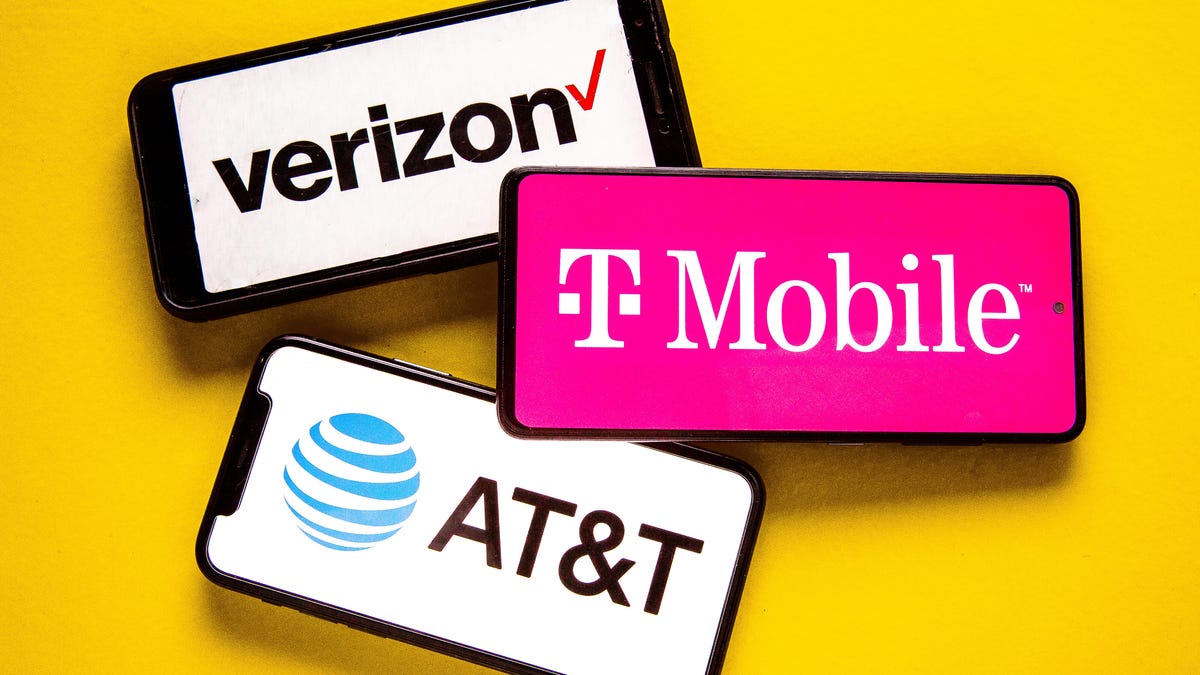If you’ve been following your wireless bill at all over the past couple of years, you’ve probably noticed various increases tied to things like an “Economic Adjustment Charge.” Just in the last few weeks both AT&T and Verizon said that they will hike the rates of some of their older unlimited plans.
Some carriers, like T-Mobile, have long included taxes and these types of fees in the sticker prices of their recent plans. But even T-Mobile has found ways to eke out more money from its users, including a recent change to its auto pay discounts when using credit cards. AT&T has made a similar change recently, though it does still offer some discounts if you pay with a credit card.
Unfortunately, like with most changes wireless carriers make, you’re pretty limited in what you can do. You can call up and complain and hope to get a favorable customer service representative who can add a different discount to mitigate the price hikes, switch to a newer (and perhaps pricier) unlimited plan than what you currently have, or switch carriers outright.
Are all these charges legitimate?
Most likely they are. However, many phone companies have been heavily fined in the past for the practice of “cramming,” which artificially inflates customers’ bills. Over the past decade, Verizon, T-Mobile and AT&T have had to settle various charges of cramming, at times paying over $100 million depending on the severity of the issue.
If you believe that your wireless provider bill possibly has fraudulent charges, the FCC recommends first attempting to straighten out those details directly with your provider. If that adjustment does not take place, you can file a complaint, says the FCC.
So what exactly are these extra charges from the three major wireless carriers? We’ll try to demystify them for you.
Note: While we looked at a few bills, some of these charges, particularly certain taxes and fees, will differ depending on where you live and the plans you have.
AT&T
AT&T tacks a number of fees onto its wireless plans, including an “Administrative Fee,” “Federal Universal Service Charge” and a “Regulatory Cost Recovery Charge.” While some of these, particularly the latter two, sound like unavoidable government-imposed taxes (though those do exist too), the carrier actually makes it pretty clear online when you click on any of the charges that these are not required by regulators.
For the “Administrative Fee,” AT&T says that it covers the carrier’s expenses involving phone calls, including the costs incurred when calling other carriers, renting out cell tower sites and maintenance.
The carrier adds that this “isn’t a tax or charge which the government requires AT&T to collect from its customers” and that “the amount we charge may change.”
The “Federal Universal Service Charge,” meanwhile, is a “monthly fee that helps AT&T recover its required contribution to the Federal Universal Service Fund,” which it says “supports affordable telecommunications service for all consumers across the country, especially in rural areas.” The FCC’s own guide to the Federal Universal Service Fund affirms that requirement but notes that carriers do not have to pass that cost along to customers.
As for the “Regulatory Cost Recovery Charge,” AT&T says it is to “recover the cost” of government fees “imposed on AT&T” and for the carrier “complying with government-imposed regulatory requirements.”
Like the Federal Universal Service Fund charge, AT&T discloses that it’s not required to pass this cost onto customers, and the amount charged can change.
AT&T did not respond to a CNET request for comment.
Verizon
Verizon has many of the same charges on some of its plans, placing them under a tab called “surcharges.” Fees you may see there will include the same “Fed Universal Service Charge” AT&T detailed, a “regulatory charge,” an “admin and telco recovery charge” as well as a “gross receipts” surcharge.
Unlike AT&T, Verizon does not itemize what each of these charges are when looking at a bill on its app. Instead, it groups them all together with a larger overall description if you tap the little “i” icon on your online or in-app bill.
The carrier then explains that “surcharges are discretionary charges, subject to change, not taxes, that we collect to fund certain governmental and other expenses.”
Looking at a PDF of a physical bill, the carrier lists out more details on the final pages including that the surcharges are used to help “defray various government charges we pay” and once again stressing that these charges are not taxes or government-imposed fees.
Verizon did not respond to a CNET request for comment.
T-Mobile
As mentioned, T-Mobile has long bundled the taxes and fees it charges into some of its sticker prices, but does not employ this for some of its cheaper Essentials plans. Either way, the carrier does account for them and even lists some of the details on its bills.
Similar to the language used by its rivals, T-Mobile notes that these are “recovery charges, not governmentally imposed taxes” and can be subject to change. Per the carrier’s bill, here are the exact details of what it collects and the reasoning it provides:
- Regulatory Programs and Telco Recovery Fee, collected and retained by us:
- Regulatory Programs Fee ($0.50 for voice lines, $0.12 data-only lines) — defrays certain costs for funding and complying with government mandates, programs and obligations, like E911 and local number portability.
- Telco Recovery Fee ($2.99 for voice lines, $1.28 data-only lines) — defrays costs and charges imposed on us by other carriers for delivery of calls from our customers to theirs and for certain network facilities (e.g. leases), operations and services we obtain to provide you service.
2. State and federal Universal Service Fund charges (recovers charges imposed on us by the government to support universal service).
3. Other governmental assessments including, without limitation, gross receipt and excise taxes.
When contacted by CNET, T-Mobile pointed to its support page, where it also lists out these details.

